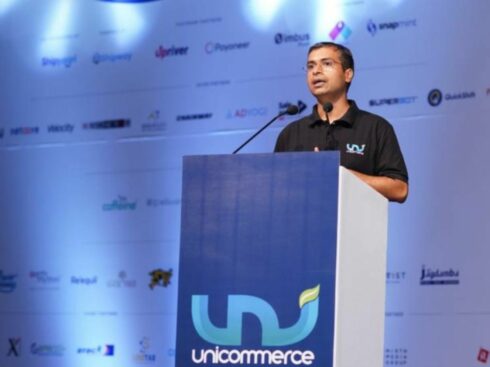SUMMARY
According to Avnish Sabharwal, the biggest challenge that deep tech startups face is of a long gestation period
“For deep tech startups, the biggest problem with data is getting access to it,” says Sabharwal
According to him, most of the collaborations seen between startups and corporates end at the proof-of-concept level
This article is part of a series by Inc42 that will bring to the fore the voices of key stakeholders to help you cut through the noise and decode the Indian Startup Ecosystem. As part of this effort, Inc42 is also hosting The Ecosystem Summit — an invite-only summit curated to bring together an unparalleled group of CEOs, founders, investors, and industry experts — on November 16.
According to Ernst and Young (EY), there’s a global trend on the prowl where one is seeing the balance of power tipping away from large corporations toward agile startups.
The report states that corporates face the challenge of generating their own disruption while startups often deploy new digital technologies to challenge legacy players who are weighed down with massive investments in infrastructure, processes, and customers.
Global IT services giant Accenture seems to have found a way to overcome the challenge through its venture capital arm, Accenture Ventures. It is the magic bullet that the multinational company is using to remain agile to adapt to changes taking place in technology, especially those that involve deep tech like artificial intelligence (AI) and IoT.
Order The Report NowAccenture is just not partnering with startups but also with other big companies. Take, for example, its agreement with Microsoft to build custom AI services tailored for customers in specific industry verticals.
Inc42 recently caught up with Avnish Sabharwal, the managing director of Accenture Ventures, who was also a speaker at the NASSCOM Product Conclave 2018 held in Bengaluru, where the topic of discussion revolved around the next frontier of disruptive technology innovations with the key focus this year being “Product Mission 2020: Are We Ready?”.
One of the questions we asked Sabharwal was why hasn’t India a significant startup in the field of deep tech till date. This was his reply: “The challenge that startups are facing in the deep tech space is that this sector requires a long gestation period…if you take a look at Israeli startups and go into the reasons as to why they are so good is because they have been incubated for a long period of time either by the military or academia before they come out with their product.” According to him, unfortunately, in India, one doesn’t have that opportunity and people generally put money in ventures where they can get a quick return on investment (ROI).
What also complicates matter is that once the product is out, larger companies are not willing to pay the kind of price such advanced tech-based products demand.
“Both startups and corporates are not able to ascertain the value of deep tech products, especially because it’s a technology that is still evolving,” says Sabharwal.
A 2017 NASSCOM-Zinnov report indicated that India is the third-largest AI startup ecosystem with Bengaluru being a leading hub for deep tech startups, followed by Hyderabad and the National Capital Region (NCR).
Next Evolution of Deep Tech Startups In India
According to Sabharwal, when the product-market fit is done, one of the next steps is to start thinking global, and that is something that startups in India are getting used to. “Most of the corporates prefer to work with startups outside India because most their business is outside India online and so, for them, it is easier to work with startups in their geography,” he says.
“Indian companies should be doing much more when it comes to working with startups,” adds Sabharwal.
So, what role can corporates play in working with startups in India?
Sabharwal explains the various stages where the opportunity to collaborate exists. According to him, during the early stage, startups can work with corporates in the discovery/ideation are where the former can help the latter discover the next disruption platforms.
The second stage for a startup is translating the use case into a minimum viable product (MVP) and this is something corporates can help startups do very quickly. The agility to do these things gives a corporate parallel capability to juggle multiple products at the same time.
Sabharwal feels that the one drawback while working with startups is that they are great innovators but are not the best when it comes to delivery. “The biggest evolution for us has been to go beyond the proof-of-concept stage (PoCs). Our support system eases processes like legal hygiene and drafting of contracts. One of the reasons why we have been successful is that we have put the needs of the startups as paramount,” he explains.
He adds that most of the collaborations seen between startups and corporates end at the PoC level, which is not the case with Accenture. His company focuses on taking the solution from PoC to scale and production.
Order The Report NowWay Ahead For Deep Tech In India
As technologies evolve, so do regulations, with the government and regulators trying to keep checks and balances in these advancing technologies.
Regulations like the GDPR in Europe and the draft Data Protection Bill in India are giving companies and startups much to worry about when it comes to how they access and use user data.
“Policy and regulation always lag behind innovation. With all this noise, the startups are also getting aligned. For deep tech startups, the biggest problem with data is getting access to data because if you are looking at an AI startup a lot depends on the quality and quantity of data which is why the Chinese are doing so well,” says Sabharwal.
“If the consumer is given the right incentives, they will share the data,” Sabharwal adds.
According to Sabharwal, the need of the hour is for deep tech Indian startups to access data, but in a secure environment.
Talking about trends, he mentions that one of the hottest in-demand technologies this year is going to be robotic process automation (RPA) and most organisations are realising that the journey to streamline AI starts with RPA. Some of the sectors that will drive RPA include banking, insurance, and finance. From an AI perspective, AI bots will gain further prominence with most organisations employing them.
“You can already see this happening if you look at the kind of funding and valuations that RPA startups are getting like UI Path, a billion dollar-plus valuation,” he says.
Sabharwal believes that technologies such as blockchain and cybersecurity are trends to watch out for, but that “is not happening right now” and it may be up to two years before we start seeing real traction with real ROI from blockchain startups.
Order The Report Now


























